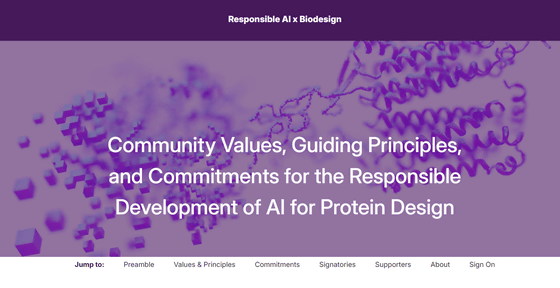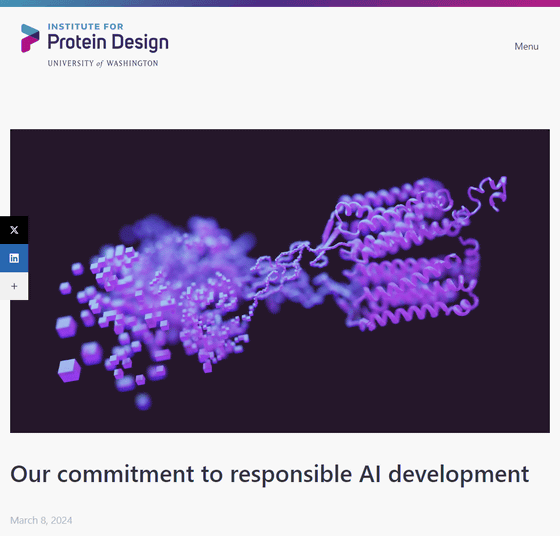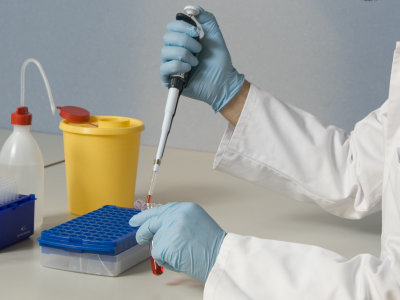More than 130 scientists sign pledge to prevent AI from being used to develop biological weapons, maximizing benefits and minimizing risks of AI protein design

A 10-point pledge from over 130 scientists from over 20 countries summarizing efforts to promote responsible AI development, calling on people to maximize the benefits and minimize the risks of AI in protein design. I agreed.
Responsible AI x Biodesign

Our commitment to responsible AI development - Institute for Protein Design
https://www.ipd.uw.edu/2024/03/our-commitment-to-responsible-ai-development/

Advances in AI are leading to major breakthroughs in biological research, making it possible to design functional biomolecules, especially proteins. By making it possible to analyze and design the three-dimensional structure of proteins using AI, it is possible that we will be able to develop new drugs and discover treatments for diseases that humans have not been able to find before.
On the other hand, these advanced science and technologies can sometimes threaten humanity. New biomolecules may pose a threat to life and may even be used as biological weapons.

Based on the content of the summit held on October 25, 2023 at the Protein Design Institute at the University of Washington, participating scientists and representatives from companies, charities, and government organizations announced that A pledge entitled “Community Values, Guiding Principles and Commitment to Responsible Development” was released.
The pledge sets out the guiding principles of 'Using AI to benefit society,' 'Safety and security of AI,' 'Openness of AI,' 'Fairness and international cooperation in AI development,' and 'Responsibility for technology.' Based on this, the following 10 pledges have been compiled.
01: We conduct research for the benefit of society and do not conduct research that has the potential to harm society or lead to misuse of technology.
02: We support community efforts to prepare for and respond to infectious disease outbreaks and other emergencies.
03: We only accept DNA synthesis services from providers who demonstrate compliance with industry standard biosecurity screening to detect hazardous biomolecules prior to production.
04: We will help develop new strategies to improve DNA synthesis screening to better detect dangerous biomolecules before they are manufactured.
05: We continually evaluate the capabilities of our protein design AI and strive to identify and mitigate all significant safety and security risks.
06: We support efforts to improve how we evaluate protein design AI and identify risks.
07: We hold regular secure meetings to reflect on capabilities and risks in our field.
08: We report on research practice.
09: We share the benefits and risks of our research.
10: We will revise the above principles and commitments as necessary and share them with new colleagues in the field.

At the time of writing, 131 scientists had expressed support for this pledge. Among them are Francis Arnold , who won the Nobel Prize in Chemistry in 2018, and Eric Horowitz, Microsoft's chief scientific officer (CSO) and director of Microsoft Research.
Lead author of the pledge, David Baker, director of the Protein Design Institute at the University of Washington, said: 'Using AI responsibly in protein design will lead to new vaccines and medicines that benefit the world, sustainable Materials will be developed, and as scientists we must ensure that this happens while minimizing the potential for AI to be misused to cause harm.'
Related Posts:







